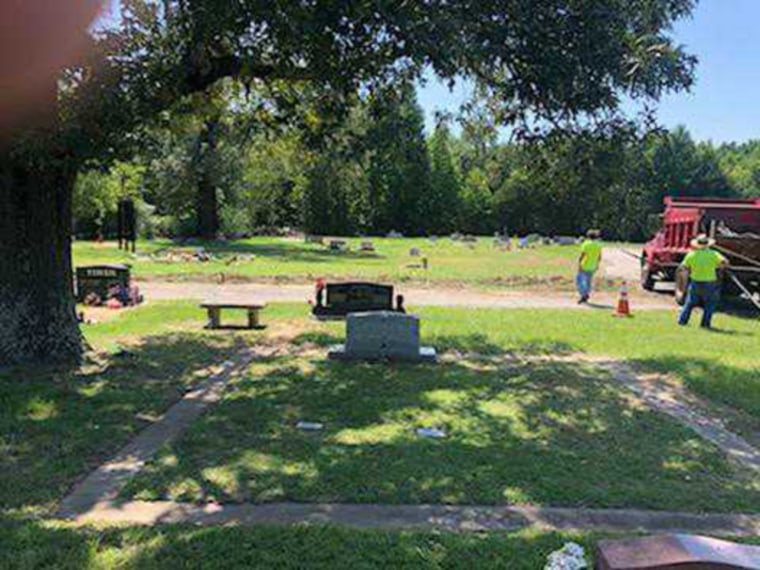For decades, a fence divided the Black and white cemeteries in the small east Texas town of Mineola.
The fence has come down.
On Wednesday, crews began digging up the chain-link fence that was 1,280 feet long, separating City Cemetery, which held the graves of Black people, from Cedars Memorial Garden, which held graves of white people.
The project was completed Friday evening, St. Paul Missionary Baptist Church pastor Demethrius Boyd told NBC News in a phone interview Saturday.
"The symbolism that it represents is far beyond the year that we are now in in race relations," said Boyd, who is Black, "and the perspective that it gives off is far beyond the time that we need to make sure that we promote things that are more positive in nature."

Boyd said he has been working since 2007 to get the fence removed. Conversations about taking it down were revived a few weeks ago after a funeral for an African American former FBI agent and Marine drew mourners from outside Mineola, which is about 75 miles east of Dallas.
That funeral, combined with the social climate in the wake of the Minneapolis police killing of George Floyd, led Boyd to once again seek to remove the fence.
"I began to pursue conversations with other parties on both sides," Boyd said. "It was a partnership and conclusion to take it down."
David Collett, president of Cedars Memorial Garden, told NBC News that the fence has been up for decades. He praised the decision to finally take it down and to begin moving toward combining the two cemeteries under one entity.
"I think it's great [that] everybody was talking about it and a solution was reached. Now the two cemeteries, we're going to join up together so it's just going to be one cemetery," he said. "It's really opened up some dialogue, and that's good."
Boyd said the reaction has been very positive and there's been a mutual understanding "that this is the right time and the right season to do it in the climate that we're in now."
He added: "Not that it wasn't needed before, but the significance is even pressing further now due to a lot of things transpiring now nationally."